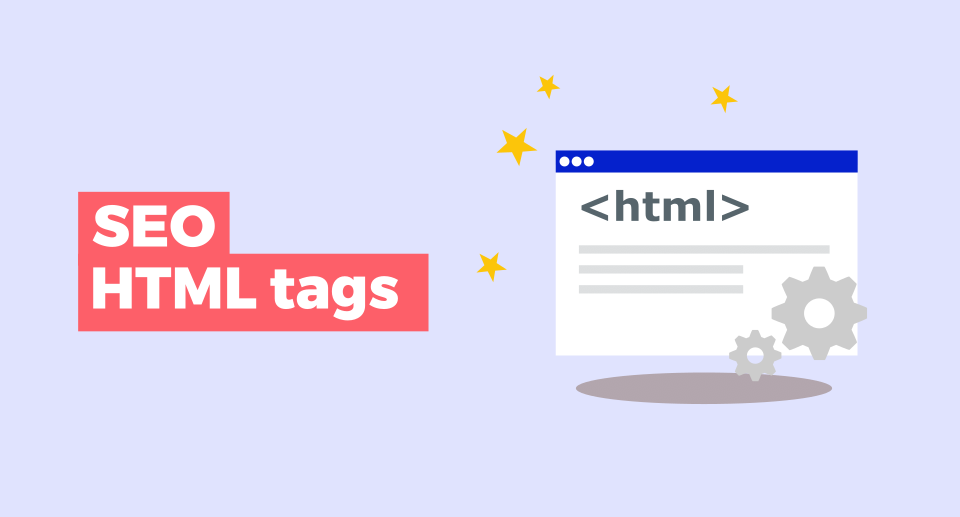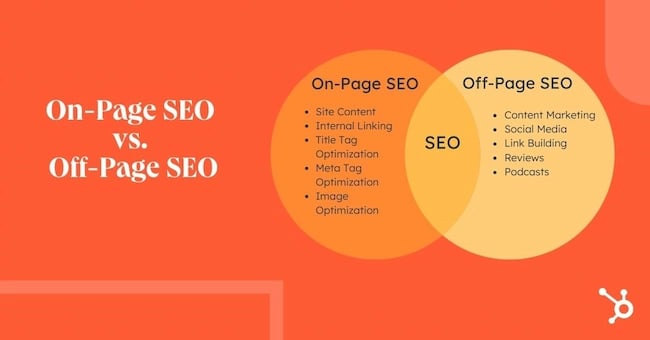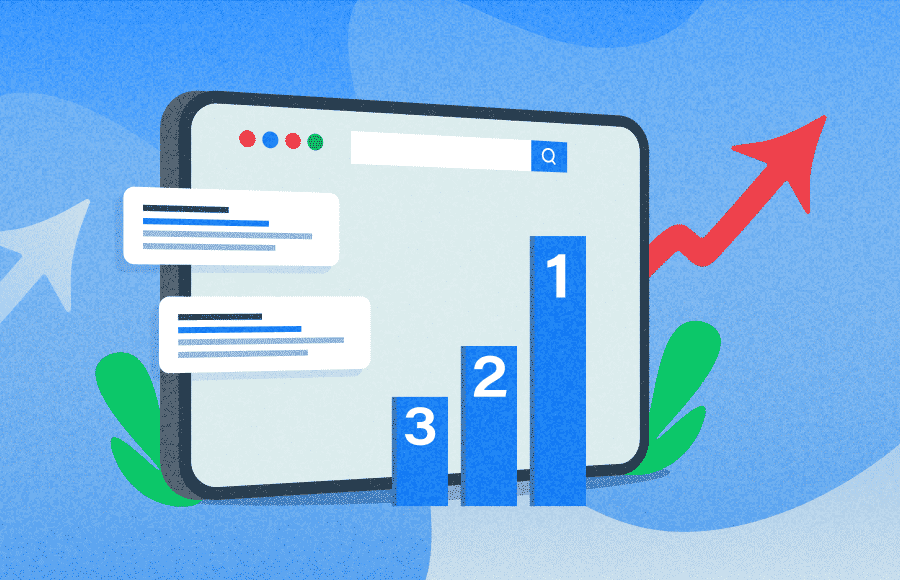Dive into the world of HTML link code and discover how to master the art of crafting effective links for SEO.

Image courtesy of via DALL-E 3
Table of Contents
Introduction: Why HTML Links Matter
HTML links are an essential component of connecting web pages and improving SEO. But what exactly are HTML links, and why are they so important? Let’s dive into the world of linking and discover why it matters.
What is HTML?
HTML, short for HyperText Markup Language, is the language used to create and structure web pages. Think of it as the building blocks that make up the websites you visit every day.
What are Links?
Links are like magic portals on the internet that transport you from one webpage to another with just a simple click. They are those colored or underlined words or images you see on a webpage that take you to a different page when you click on them.
Why Are Links Important?
Links play a crucial role in helping users navigate through different pages on a website. They also help search engines like Google understand the relationship between various pages, which in turn affects how websites are ranked in search results. In a nutshell, links make the web go round!
Basic HTML Link Code
In HTML, a link is created using the tag, also known as the anchor tag. This tag tells the browser that there is a link present on the webpage. The basic structure of an anchor tag is <a href=”URL”>Link Text</a>. Here, the href attribute specifies the destination URL where the link will take you, and the Link Text is the clickable text displayed on the webpage.
Href Attribute
The href attribute in the anchor tag is crucial because it determines where the link will direct the user. By specifying the URL of the destination page within the href attribute, you are telling the browser where to go when the link is clicked. For example, <a href=”https://www.example.com”>Visit Example Website</a> will create a link that takes you to the “https://www.example.com” page.
Open Link in New Tab
If you want a link to open in a new tab when clicked, you can use the target attribute within the anchor tag. Adding target=”_blank” will make the linked page open in a new browser tab, keeping your original page open for the user. This is useful when you want to direct users to external websites without taking them away from your own site.
Crafting Effective Link Text
When creating links on your website, it’s not just about adding a clickable element; it’s also crucial to think about the text that users will click on. Here’s why crafting effective link text is so important for both user experience and SEO:

Image courtesy of mangools.com via Google Images
Descriptive Text
Effective link text is all about being clear and descriptive. Instead of using generic phrases like “click here” or “read more,” it’s best to use text that tells users exactly where the link will take them. For example, instead of saying “click here for more information,” a better option would be “learn more about our services.” This way, users know what to expect when they click on the link.
Avoid ‘Click Here’
Using phrases like “click here” as link text is not only vague but also not descriptive of the content the user will find. Search engines use link text to understand the context of the linked page, so using generic phrases can hurt your SEO. By using descriptive text, you not only improve the user experience but also help search engines better index and rank your website.
Internal vs. External Links
When it comes to linking web pages together, there are two main types of links you should know about: internal links and external links. Understanding the differences between these two types of links is essential for improving your website’s SEO.
Internal Links
Internal links are links that connect pages within the same website. These links help users navigate your site and also help search engines understand the structure and hierarchy of your content. Internal links are like signposts that guide users from one page to another, making it easier for them to explore your website.
External Links
On the other hand, external links take users to pages on different websites. These links can be helpful when you want to provide additional resources or reference information that is not on your website. While external links can enhance the credibility and authority of your content, it’s important to link to reputable and relevant sources to maintain a positive impact on your SEO.
Using HTML Link Attributes
HTML link attributes are additional pieces of information that can be added to a link to provide more context and functionality. These attributes play a significant role in enhancing the user experience and optimizing your website for search engines.

Image courtesy of blog.hubspot.com via Google Images
Title Attribute
The title attribute is used to provide additional information about a link when a user hovers over it. This information can help users understand where the link will take them before actually clicking on it. For example, if you have a link that says “Learn More,” adding a title attribute like title="Click here to find out more about our products" can give users a better idea of what to expect.
Rel Attribute
The rel attribute is used to specify the relationship between the current document and the linked document. One common value for the rel attribute is nofollow, which tells search engines not to follow the link. This can be useful for preventing search engines from indexing certain pages or preventing link spam. Other values for the rel attribute include noopener and noreferrer which define how the link should be opened and whether information should be passed to the linked page.
SEO Best Practices for Links
When it comes to enhancing your website’s SEO, implementing best practices for link building is crucial. By following these guidelines, you can improve your site’s visibility and credibility in search engine results. Here are some key strategies to consider:
Quality Over Quantity
It’s essential to prioritize quality over quantity when building links for your website. While having a high volume of links may seem beneficial, search engines like Google value the quality of links more than the quantity. Focus on acquiring links from reputable and relevant websites to boost your SEO ranking.
Relevance
Links should be relevant to the content on your website. When search engines crawl your site, they look for connections between your content and the links pointing to it. By including links that are contextually relevant, you can improve the overall authority and credibility of your website in search engine rankings.
Avoid Broken Links
Broken links can harm your SEO efforts by negatively impacting user experience and site credibility. Regularly checking for broken links and fixing them promptly is crucial for maintaining a healthy website. Utilize tools like broken link checkers to identify and address any broken links on your site.
Checking and Updating Links Regularly
Just like you clean your room to keep it neat and organized, it’s important to regularly check and update the links on your website to ensure everything is working smoothly. Let’s dive into why this is important and how you can keep your links in tip-top shape.

Image courtesy of slickplan.com via Google Images
Tools for Checking Links
There are special tools available that can help you identify any broken or outdated links on your website. These tools scour through your web pages and flag any links that are no longer working or lead to pages that have been removed. Some popular link checking tools include Dead Link Checker and Google Search Console.
Updating Links
Once you’ve identified any problematic links, it’s time to roll up your sleeves and start updating them. If a link is broken, replace it with a working link that leads to the appropriate page. If a linked page has been removed, consider redirecting the link to a similar or updated page on your website. Regularly updating your links ensures that users have a seamless browsing experience and that search engines can properly index your website.
Want to turn these SEO insights into real results? Seorocket is an all-in-one AI SEO solution that uses the power of AI to analyze your competition and craft high-ranking content.
Seorocket offers a suite of powerful tools, including a Keyword Researcher to find the most profitable keywords, an AI Writer to generate unique and Google-friendly content, and an Automatic Publisher to schedule and publish your content directly to your website. Plus, you’ll get real-time performance tracking so you can see exactly what’s working and make adjustments as needed.
Stop just reading about SEO – take action with Seorocket and skyrocket your search rankings today. Sign up for a free trial and see the difference Seorocket can make for your website!
Conclusion: Linking it All Together
Effective HTML links play a crucial role in enhancing both user experience and search engine optimization (SEO) for websites. By understanding how to craft and maintain links properly, web creators can significantly boost their online visibility and audience engagement. Let’s recap the key takeaways and emphasize the importance of implementing a solid linking strategy.
Key Takeaways
In this blog post, we’ve explored the significance of HTML links in connecting web pages and improving SEO. Understanding the basics of HTML, the importance of descriptive link text, the differences between internal and external links, and the use of additional attributes can all contribute to creating effective links. Remember that quality always trumps quantity when it comes to link building, and relevance is key to driving organic traffic to your website. Regularly checking and updating links is essential to maintaining a healthy website and ensuring a positive user experience.
Final Thoughts
As you continue to develop your website or blog, remember to prioritize link maintenance and follow SEO best practices. By keeping your links up-to-date, relevant, and of high quality, you can improve your site’s ranking on search engines and provide a seamless browsing experience for your visitors. Embrace the power of HTML links and watch your online presence grow!
What is the Most Important Attribute in an HTML Link?
The most important attribute in an HTML link is the href attribute. This attribute specifies the destination of the link, telling the browser where to go when the link is clicked. It is crucial for linking one webpage to another and plays a significant role in improving the user experience and SEO of a website.
How Often Should I Check My Links?
It is recommended to check your links regularly to ensure they are functioning properly. Broken or outdated links can harm your website’s SEO and user experience. By conducting regular link maintenance, you can identify and fix any broken links, update outdated URLs, and ensure that your website remains accessible and optimized for search engines.
Can Links Affect My Website’s SEO?
Yes, links can have a significant impact on your website’s SEO. Good quality links from reputable and relevant websites can improve your website’s credibility and visibility in search engine results. On the other hand, bad or broken links can harm your SEO by signaling to search engines that your website may not be reliable or up-to-date. It is essential to build a strong linking strategy that focuses on quality over quantity and ensures that your links are relevant and up-to-date.







